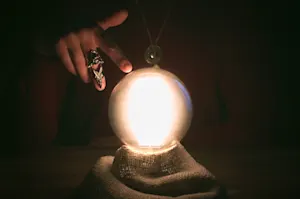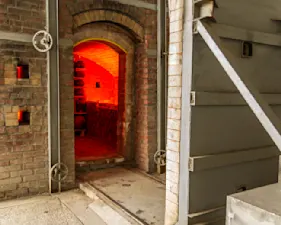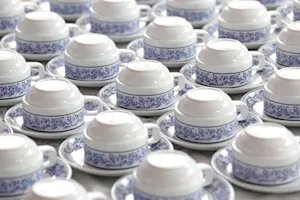What Makes This Word Tick
The word "sepulchral" carries an air of somber mystery. It's an adjective often used to describe things that are related to a tomb or grave, evoking a sense of deep, mournful gloom. Think of the quiet, shadowy corners of an old cemetery or the hushed, reverent tones spoken in a mausoleum.
If Sepulchral Were a Person...
Sepulchral would be the quiet, reserved type who always seems to be wearing a black turtleneck, contemplating the mysteries of life. Perhaps Sepulchral spends evenings strolling through dimly lit, cobblestone streets, pondering art and philosophy with an ever-present aura of profound introspection.
How This Word Has Changed Over Time
Though sepulchral has maintained a consistently somber meaning, its associations have broadened. Originally tied strictly to the physical presence of a tomb, it now also captures the emotional weight and atmosphere of grave-like silence or feelings.
Old Sayings and Proverbs That Use Sepulchral
While there might not be direct proverbs that use "sepulchral," its essence echoes through sayings like "resting in peace" or "quiet as the grave." These phrases capture the serene stillness that "sepulchral" embodies.
Surprising Facts About Sepulchral
Sepulchral traces its roots back to the Latin "sepulchralis", related to "sepulcrum", meaning tomb or burial place. Despite its somber vibes, it’s occasionally used with irony to describe overly dramatic or gloom-laden settings far removed from actual graves.
Out and About With This Word
You might stumble upon "sepulchral" at a historic ghost tour guide's script, describing the eerie ambiance of an ancient crypt. Or, just imagine someone using it to dramatize the mood of a dreary, rain-soaked Monday morning meeting!
Pop Culture Moments Where Sepulchral Was Used
Tim Burton films often encapsulate sepulchral atmospheres with their gothic settings and dark humor. While the word itself might not feature prominently, its spirit is all over works like "The Nightmare Before Christmas" and "Corpse Bride."
The Word in Literature
"Sepulchral" is at home in gothic novels and poetry, lending its grave-like charm to works by Edgar Allan Poe or Mary Shelley. It's often used to set the tone for passages filled with melancholy or introspective contemplation.
Moments in History with Sepulchral
Think of the sepulchral tones that likely filled the air when Tutankhamun's tomb was first opened. The sense of awe and otherworldly quiet that accompanies the exploration of ancient, untouched places holds the spirit of this word.
This Word Around the World
In France, you might hear "sépulcral" used similarly, while in Spanish, "sepulcral" offers the same mournful resonance. Interestingly, Japanese culture might express this concept through the serene beauty of a Zen stone garden, where tranquility and contemplation reign.
Where Does It Come From?
Sepulchral has been with us for quite a while, borne out of Middle English and then drifting back further to Latin origins. Its timeless nature reflects our long-standing human fascination with death and the afterlife.
How People Misuse This Word
Some might use "sepulchral" to describe any kind of silence, but it's most fitting when that quiet carries an undertone of solemnity or gloom. A library isn't sepulchral—unless it's a mysterious wing filled with old, dusty tomes.
Words It’s Often Confused With
Somber: Both imply darkness, but sepulchral is more linked to death.
Morose: This refers to a gloomy mood, while sepulchral has more atmosphere.
Stygian: Related to the River Styx, both suggest darkness but sepulchral is more about burial connections.
Additional Synonyms and Antonyms
Synonyms for sepulchral include "funereal," "gloomy," and "lugubrious." Antonyms might be words like "lively," "cheerful," and "bright."
Want to Try It Out in a Sentence?
Here's a challenge for you: "The sepulchral silence of the ancient library seemed alive with whispers of the past."
















